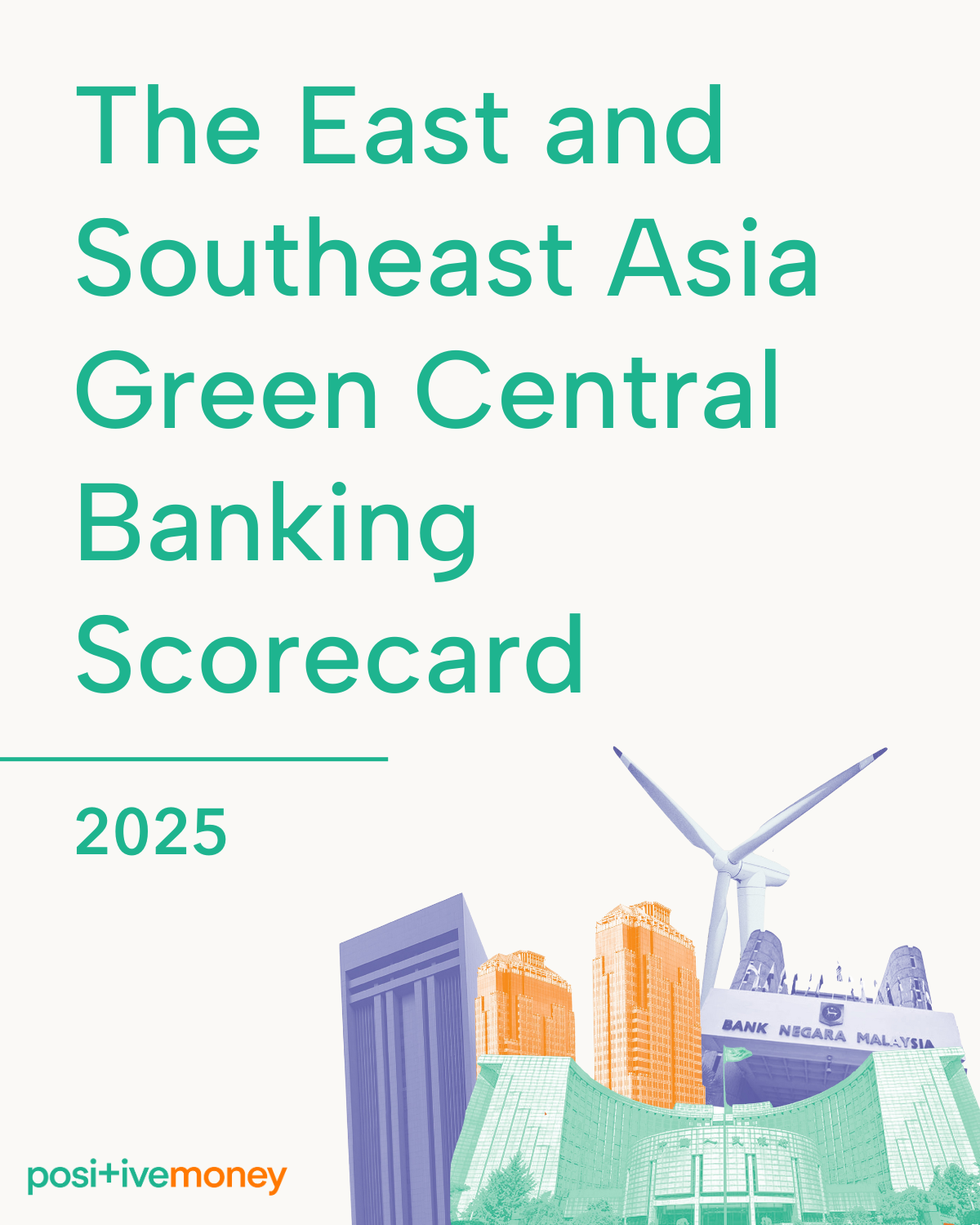|
Longer rainy seasons, hotter summers, more devastating storms and typhoons. That’s the reality for countries across East and Southeast Asia, John - a region home to 70% of the global population most vulnerable to sea level rise. [1] Central banks are taking action - but are they doing enough?
Our brand new report investigates green central banking in 13 countries, including China, Japan, Indonesia and more, and ranks their progress.
|
|
|
To launch the report, we brought together five leading experts on green finance and central banking in the ASEAN+3 bloc (a group of 13 nations in East and Southeast Asia that the Scorecard focuses on) for a webinar. The panel included current and former central bankers as well as international policy experts, and was a great opportunity to hear thoughts on progress and challenges in this area. |
|
🔎 ...or take a look at some of the key findings 🔎 |
|
Our rankings are led by China in first place with Malaysia, Singapore, Indonesia, The Philippines and Japan following in that order. At the lower end of scores are the cluster of five countries with lower GDP and clearly at the start of their green central banking journey - Vietnam, Cambodia, Lao PDR, Brunei, and Myanmar.
|
|
If you’re interested in learning more, check out the report itself, or one of our posts on LinkedIn, X or Bluesky, where we break down some of the other key messages. |
|
📰 Check out the international press coverage 📰 |
|
In the words of Dr Heru Rahadyan (one of our panellists), the Scorecard provides “a benchmark of progress, a spotlight on the gaps and a call to action” - and has attracted coverage from multiple news outlets around the world. |
|
|
That’s all for now! Our report shows that despite concerning moves from the US, the collapse of the Net Zero Banking Alliance, and increased fossil fuel funding from banks in 2024 - there’s still hope. [2]
The actions central banks make in the East and Southeast Asia region will have a huge impact on the global fight against the climate crisis. With the Scorecard, we’re celebrating the progress so far, and outlining the key actions for central banks to step up even further.
Finally, thank you - it’s your support that helps produce pioneering research like this, to push forward our work to redesign our economic system for social justice and a liveable planet.
Best wishes, Joe |
|
|
Joe Herbert Senior Researcher, Positive Money
P.S. Did you like this longer newsletter, giving you more ways to find out about our report? Let us know by replying to this email.
Notes: [2] BBC News: US to scrap landmark finding that sets limit on carbon emissions |
|
Positive Money relies on donations from generous individuals like you to carry out our work to redesign our economic system for social justice and a liveable planet. |
|
FOLLOW US ON SOCIAL MEDIA |



.png)






